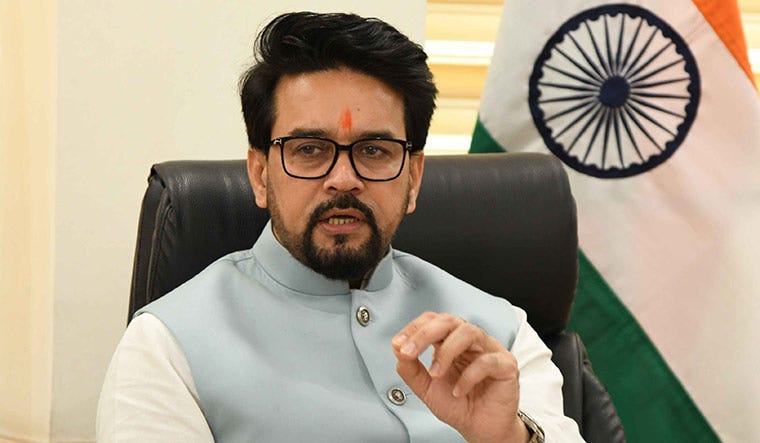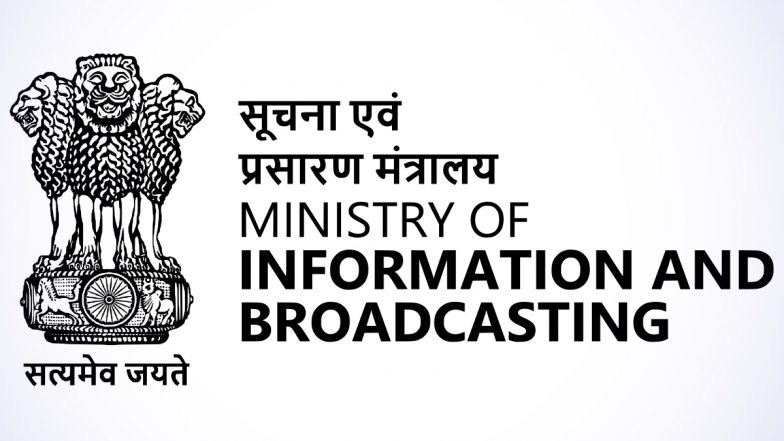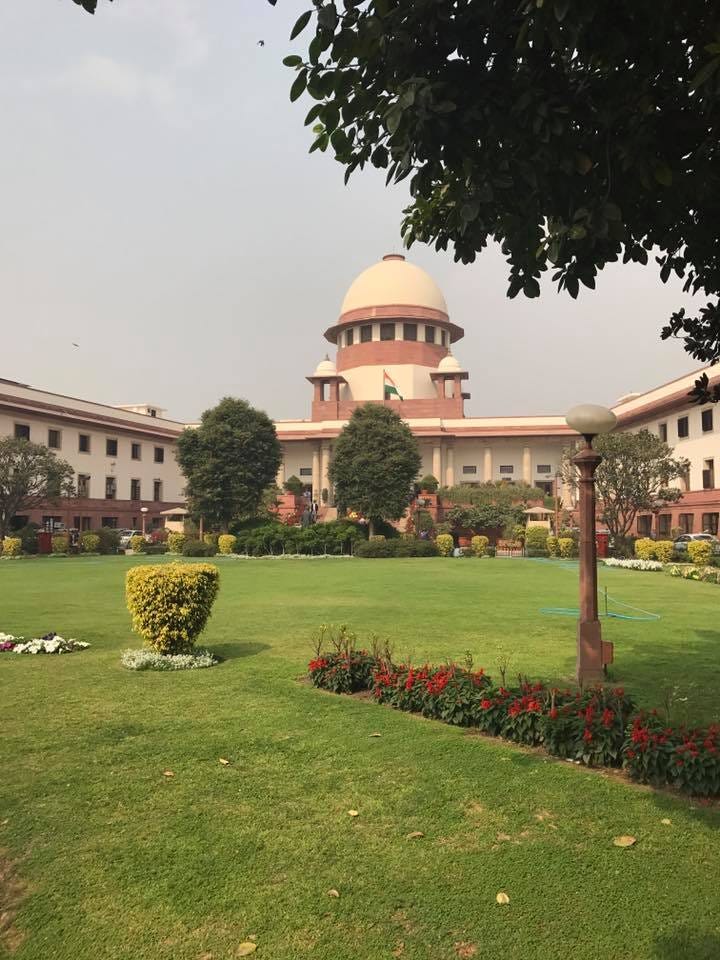Freedom of Press— "Don't Lionise and Promote anti-India elements"
Safeguarding the Nation: An analytical look at the I&B Ministry's Latest Advisory to TV Channels.
Introduction
Last evening, the Ministry of Information and Broadcasting (I&B) issued an advisory to all private satellite television channels, urging them to refrain from providing a platform to individuals who are charged with serious crimes, including terrorism. The Government asserts that the advisory is in alignment with the Cable Television Networks (Regulation) Act, 1995, and aims to protect the sovereignty, integrity, and security of India1. While the freedom of speech is a constitutionally protected right under Article 19, this advisory serves as a reminder that the media has a heightened responsibility to exercise this right within the confines of reasonable restrictions.
The Intent and Context
The Ministry's advisory was prompted by a serious incident involving a television channel. This channel aired an interview with a foreign-based individual facing criminal and terrorism-related charges. Furthermore, the individual is a member of an organisation banned under Indian law and made comments that could harm India's security and sovereignty. The advisory, thus, serves as an immediate measure to uphold responsible broadcasting and national interests.
The Cable Television Networks Act, 1995
The Government has emphasised that all televised content must strictly adhere to the provisions outlined in Section 20 of the Cable Television Networks (Regulation) Act, 1995. This legislative framework provides the Central Government with the authority to not only regulate but also to prohibit the transmission or retransmission of any television channel or programme that is found to be a threat to the unity, sovereignty, or public order of India. This underscores the Government's commitment to ensuring that broadcasting serves the public interest while respecting the boundaries set by law.

The Seriousness and Background of the Issue
Media platforms possess substantial power as vehicles for disseminating information to a wide audience, yet this very capability can be a double-edged sword. These platforms have the potential to be exploited for amplifying harmful narratives and agendas. When media organisations invite individuals facing serious criminal or terrorism-related charges to share their perspectives, they may either inadvertently or consciously provide a platform that runs counter to the national interest. In this context, the Ministry’s advisory serves as a significant and timely reminder for media channels to exercise heightened discernment and caution in their reporting and coverage.
The Punjab Episode
An event relating to Punjab, where a gangster facing multiple criminal cases in various states was able to give a long video interview while in judicial custody, highlights a serious concern that could have occurred anywhere. This individual, who is legally required to be produced before trial courts in different states, somehow managed to circumvent the system's safeguards.
This not only raises severe questions about the integrity of our criminal and jail administration systems but also underscores the potential for similar lapses to occur in other states. When an individual in judicial custody can access means to publicly communicate, presumably through a high-speed internet, the issue transcends state boundaries and calls into question the effectiveness of our national law enforcement infrastructure. Such an incident necessitates a comprehensive review and a potential overhaul of the security measures in place, not just in Punjab but across the country. It also heightens the need for media organisations and law enforcement agencies to exercise greater caution and responsibility, given the multi-state nature of many criminal cases.
Free Speech and Reasonable Restrictions
Fundamental Rights and Responsibilities
While the freedom of speech and expression is enshrined as a fundamental right under the Constitution of India, it is important to note that this right is not absolute; it comes with what are termed as 'reasonable restrictions'. These restrictions are in place to ensure that the freedom does not infringe upon the unity, integrity, and sovereignty of the country, among other concerns. Similarly, the press corps, which is often referred to as the Fourth Estate and is considered a critical pillar of democracy, does not enjoy any special or additional rights compared to a private citizen in this context. In fact, the opposite is true. Given their influential role in shaping public opinion and disseminating information, members of the press corps have an even greater onus to adhere to the law, maintain high ethical standards, and act with integrity.
Therefore, it is imperative that members of the media recognise that while they have the freedom to report and express views, this freedom is bounded by the same constitutional limitations that apply to all citizens. Their significant role in society and the potential impact of their reporting makes it all the more crucial for them to exercise due diligence, uphold ethical guidelines, and act in accordance with the law. Failure to do so not only undermines the credibility of the media but also has the potential to endanger national security and social harmony.
Implications for the Unity and Integrity of India
Freedom of speech, while an essential tenet of a democratic society, should not be misconstrued as a licence to abet violence, sow discord, or undermine the unity and integrity of India. The principle does not offer a free pass to engage in activities that are detrimental to the nation's stability or its harmonious coexistence. Media organisations, in particular, have a paramount responsibility to tread cautiously in this regard. They must be ever vigilant not to cross the thin line that separates responsible, ethical journalism from sensationalism or scaremongering. Practising responsible journalism necessitates that media outlets exercise due diligence in fact-checking, remain objective in their coverage, and uphold the highest ethical standards to ensure that they don't inadvertently or purposefully engage in activities that could put national security or social harmony at risk.
Recommendations for Compliance
Both the Press Council of India and the Editors Guild have a significant role to play in upholding the ethical and legal boundaries of journalism in the country. Their influence extends not just to organisations but also to individual reporters, editors, and management within the media landscape. It is incumbent upon these regulatory bodies to ensure meticulous adherence to both the spirit and letter of guidelines and laws governing responsible journalism. Such adherence isn't merely a matter of protocol; it is essential for preserving the credibility and integrity of the media as a whole.
While discussions surrounding these guidelines might be framed as constraints on press freedom by some, it's crucial to steer the narrative towards a focus on compliance and responsible reporting. Compliance with these guidelines should not be viewed as an 'attack' on the freedom of the press, but rather as a safeguard to ensure that journalistic practices do not inadvertently compromise national security, public safety, or the unity and integrity of the nation. A balanced approach that values both freedom and responsibility will not only enhance the credibility of the media but also serve the broader interests of society and the nation.
Summing up and Onward Journey
The I&B Ministry's advisory is a prudent move to safeguard the nation's interests. While it might spark debates around the freedom of the press, the overarching objective is to ensure that media organisations adhere to guidelines that protect India's unity and integrity. For that reason, the advisory merits support more than criticism. Media freedom is crucial but should never be at the expense of national security.
In the light of the greater good and collective national interest, every citizen, including members of the press, should exercise their rights responsibly. Therefore, the advisory not only aligns with the law but also resonates with the principles of responsible journalism.
Having said that, a fair and fearless, unbiased and responsible reporting and analyses should be the guiding “Pole Star” of all those engaged in this endeavour, “The KBS Chronicle” included.
https://pib.gov.in/PressReleasePage.aspx?PRID=1959512








